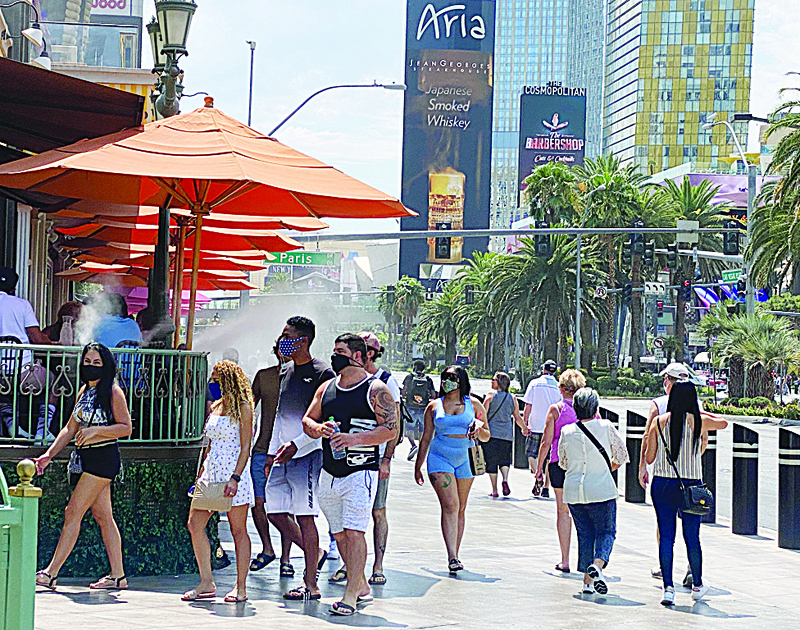
WASHINGTON: US consumers continued to spend in July but the gains were much slower than the prior two months amid a surge in coronavirus cases, and confidence remained in a "depressed range," according to new data released Friday. Separately, Coca-Cola and MGM Resorts became the latest major companies to announce massive layoffs as a result of the declines suffered during the coronavirus pandemic.
With the election in which he stands for a second term just two months away, President Donald Trump's hoped-for economic rebound from Covid-19 has not materialized and analysts warn that absent more emergency aid from the government, it may not come anytime soon.
Lydia Boussour of Oxford Economics cautioned that "momentum is at risk of faltering amid muted confidence and major income cliffs." "Providing further fiscal assistance is therefore crucial: without a healthy consumer, the broader economy will, at best, falter, and at worst, slip back into a downturn," she said in an analysis. Personal consumption expenditures (PCE) rose just 1.9 percent or $267.6 billion compared to June, after gains of 6.2 percent and 8.6 percent in the prior two months, the Commerce Department reported.
Even after sharp gains in the previous months, spending remains well below the level seen in February before the pandemic struck and forced businesses to shut down nationwide, causing tens of millions of job losses. Personal income rose 0.4 percent, after two months of declines, which the report said "was more than accounted for by compensation of employees as portions of the economy continued to reopen."
However, the reopening was accompanied by a surge in cases in many states, which then had to reimpose shutdowns. Income from emergency government support programs dropped sharply last month, and many expired July 31. The White House and Congress remain deadlocked on a new package that would include support for state and local governments and an extension of expanded unemployment payments.
More layoffs, depressed consumers
MGM Resorts announced it was laying off 18,000 furloughed workers since the outlook remains uncertain, while Coca Cola was cutting its business units and offering 4,000 severance packages in North America, with more to come internationally. After a 31.7 percent plunge in GDP in the second quarter of the year, economists expect a rebound in the third quarter although the magnitude is in doubt. Another one million workers applied for jobless benefits last week, while there were 15 million fewer people employed last month compared to February before the pandemic forced business closures.
The University of Michigan's consumer sentiment index edged up only slightly in August to 74.1 from 72.5, holding "in the same depressed range it has traveled during the past five months," the survey's chief economist Richard Curtin said. Meanwhile, the PCE price index, the inflation gauge watched most closely by the Federal Reserve, slowed as well, ticking up 0.3 percent, after a 0.5 percent gain in June. The index is up 1.0 percent compared to July 2019, the report said.
The Fed unveiled a policy shift Thursday that means the central bank will allow inflation to stay above its 2.0 percent goal for some time without raising borrowing rates in order to maximize employment gains. But that stronger emphasis on jobs will not be put into practice until the economy heats up and inflation returns. Even with unemployment at historic lows before the pandemic, prices rarely achieved the 2.0 percent rate for long. Excluding more volatile food and energy prices, PCE inflation was up just 0.3 percent last month, and 1.3 percent higher than a year earlier, the report said. - AFP

